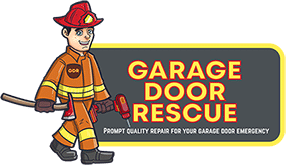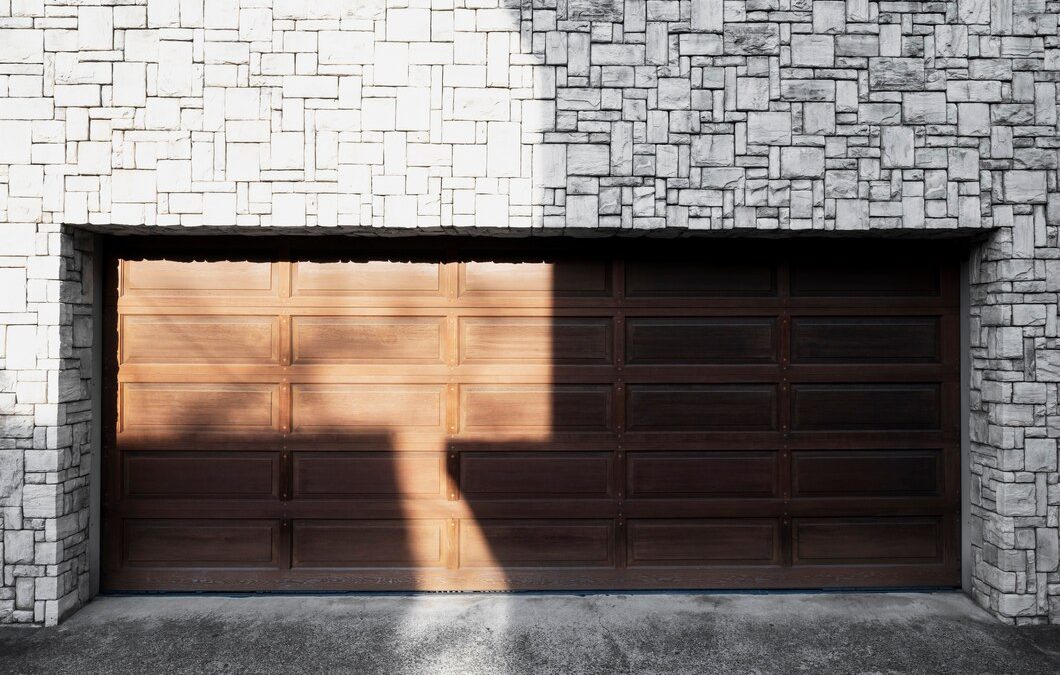Hearing a lot of noise from your garage door can be annoying, mainly if the door is used frequently. The sounds can range from mild squeaks to loud bangs, each with its cause. Sometimes, the noise even indicates the need for repairs, so it’s essential to identify and address these issues early.
Understanding why your garage door is noisy is the first step toward making it quiet again. This guide will help you explore different causes and provide practical tips for reducing sound, ensuring your garage door runs smoothly and quietly.
Common Causes of Garage Door Noise
Worn Out Rollers: Types and Effects
Garage door rollers play a crucial role in the smooth operation of your door. They help guide the door along the track as it opens and closes. Over time, these rollers can wear out, especially if they’re made of plastic. Worn-out rollers might cause your garage door to make grinding or squeaking noises. Steel rollers can be noisier as they age and lose their lubrication. If you hear rattling or shaking sounds, the rollers might have developed flat spots or cracks requiring attention.
Loose Hardware: Nuts, Bolts, and Hinges
The nuts, bolts, and hinges of your garage door can become loose with repeated use. When these components are not tightly secured, they can make rattling or banging noises as the door moves. Check for any loose hardware components and tighten them as needed. Hinges can be a sound source if they’re not properly lubricated or have worn down over time. Keeping them maintained will reduce unwanted noise.
Outdated Garage Door Opener Technology
Old garage door openers may not operate as quietly as newer models. Older openers typically use chain drives louder than newer belt-driven models. If your garage door opener is outdated, it might cause loud buzzing or grinding sounds. Upgrading your opener to a modern system could significantly reduce noise levels. Additionally, if your opener’s settings are off, it might struggle to lift the door, creating more noise.
Inspecting and Identifying Noise Sources
Steps for Listening and Observing
The best way to start identifying the source of noise is through careful listening and observation. While standing inside, open and close the garage door and note where the noise comes from. Listen for different sounds, like grinding, squeaking, or banging. Each type of noise can indicate a different issue, such as the need for lubrication or adjustment. This initial step helps pinpoint the general area of the problem.
How to Test Door Balance
Testing your garage door’s balance is another key step. Disconnect the door from the opener by pulling the release handle. Manually lift the door halfway and see if it stays in place. If the door falls or rises, it means the balance is off. An unbalanced door can make operating noises and place extra strain on the opener. Addressing the balance issue can alleviate unnecessary tension and reduce operating sounds.
Spotting Friction Points
Friction is another contributor to noise. Check the tracks, rollers, and hinges for rust or debris buildup. These can cause parts to rub together noisily. Look for any misaligned tracks where the rollers might catch and produce grinding sounds. Removing debris and checking for alignment help keep the garage door components moving smoothly. Regularly inspecting these areas allows for early detection of problems, preventing noise and potential damage later on.
Solutions to Reduce Noise
Lubrication Tips for Moving Parts
Lubricating your garage door’s moving parts can make a huge difference in noise reduction. A silicone-based lubricant ensures smooth operation for rollers, hinges, and tracks. Avoid using WD-40, as it can attract dirt and grime over time. Apply lubricants to joints and bearing plates, allowing them to work more effectively. Regular lubrication quiets the operation and extends the life of garage door components.
Tightening and Adjusting Components
Ensure that all nuts, bolts, and hinges are securely fastened. Over time, the vibrations from opening and closing the door can cause these components to loosen. Use a socket wrench to tighten any loose hardware. Check the alignment of the tracks and adjust them if necessary. Well-aligned tracks reduce unnecessary friction and noise. Adjusting the chain or belt tension on your garage door opener can also help minimize rattling sounds.
Upgrading to a Quieter Garage Door Opener
Consider upgrading to a quieter model if your garage door opener is outdated. Belt-driven openers produce less noise than older chain-driven models. They also offer smoother operation and require less maintenance. Evaluate your current opener and explore modern options that provide quiet performance, enhancing your overall comfort when using your garage door.
Preventive Maintenance for a Quieter Garage Door
Regular Cleaning and Lubrication Schedule
A consistent cleaning and lubrication schedule will keep your garage door operating smoothly. Wipe down tracks and rollers to remove dust and debris that can cause friction. Lubricate moving parts every six months. Setting reminders for these tasks ensures your garage door functions quietly and efficiently.
Importance of Professional Inspections
Scheduling regular professional inspections can help catch problems before they become significant nuisances. A trained technician can spot issues you might miss, like minor misalignments or early signs of wear. They can also perform tasks like balancing the door or adjusting the opener settings, helping to maintain a noise-free operation.
When to Consider Component Replacements
If your garage door still makes excessive noise after maintenance, it may be time to replace specific components. Consider replacing worn-out rollers or upgrading the opener entirely. Also, examine the door springs to see if they need replacing. Keeping up with component replacements will ensure your garage door operates smoothly and minimize noise, saving you from future headaches and costly repairs.
Conclusion
Understanding the reasons behind a noisy garage door and how to address them is key to enjoying a quieter, more pleasant home environment. Routine maintenance and timely troubleshooting can prevent noise from becoming a recurring issue. Identifying and resolving noise sources, such as worn-out rollers or loose hardware, creates a smoother garage door operation.
Maintaining a quiet garage door is more than just a comfort issue; it also extends the life of your garage door system. Regular care and attention help prevent unnecessary wear and tear, providing long-lasting performance. Upgrading outdated components when necessary can also make a big difference. If you’re unsure about handling repairs or need professional advice, reaching out to experts is always wise.
Is your garage door still making too much noise despite your efforts? Don’t let it become a bigger problem. Get in touch with Garage Door Rescue for expert help in managing all your garage door repair needs. Whether it’s fixing noisy parts, upgrading your opener, or performing regular maintenance, we’re here to ensure your garage door works quietly and reliably. Let us help you enjoy the peaceful operation you deserve.

